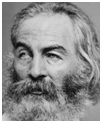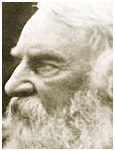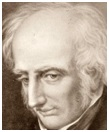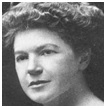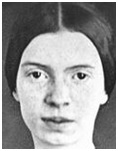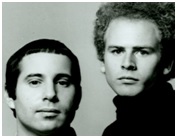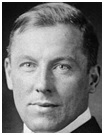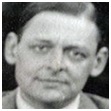|
 |
|
 |
|
|
||
Poetry - Success
Walt Whitman (1819-92), Song of the Open Road (1867) Included in his collection of poems, Leaves of Grass, the American poet (pictured right) emphasizes the importance of self-reliance to success:
Afoot and light-hearted I take to the open road, Healthy, free, the world before me, The long brown path before me leading wherever I choose.
Henceforth I ask not good-fortune, I myself am good-fortune, Henceforth I whimper no more, postpone no more, need nothing, Done with indoor complaints, libraries, querulous criticisms, Strong and content I travel the open road. (first two verses)
Henry Wadsworth Longfellow (1807-82), A Psalm
of Life (1839) The American poet (pictured right) says that success is dependent on
Let us, then, be up and doing. With a heart for any fate; Still achieving, still pursuing, Learn to labour and to wait. (last verse)
William Blake
(1757-1827), And Did Those Feet In Ancient Time
(1808) Blake's (pictured right) poem was used in the hymn, Jerusalem and emphasizes the need for “mental fight”.
I will not cease from mental fight, Nor shall my sword sleep in my hand Till we have built Jerusalem In England's green and pleasant land. (last verse)
William Wordsworth (1770-1850), The World Is Too Much With Us
(1807) The English poet (pictured right) says don’t sacrifice your soul in the pursuit of money and wealth (particularly learn from line 2):
The world is too much with us; late and soon, Getting and spending, we lay waste our powers: Little we see in Nature that is ours; We have given our hearts away, a sordid boon! (first four lines)
Ella Wheeler Wilcox (1850-1919), It Might Have
Been The American poet (pictured right) says successful people don't dwell on “what might have been” but are what they can be:
We will be what we could be. Do not say, “It might have been, had not this, or that, or this”. No fate can keep us from the chosen way; He only might who is. (first verse)
Emily Dickinson (1830-86), Fame Is a Bee
(1788) The American poet (pictured right) says that fame is short lived:
Fame is a bee. It has a song - It has a sting - Ah, too, it has a wing. (complete poem)
Emily Dickinson, “Hope” Is the Thing With Feathers In this poem Dickinson says hope is heartening but insufficent on ts own to spur us into action (“Yet, never, in Extremity,It asked a crumb - of Me”, last two lines): “Hope” is the thing with feathers - That perches in the soul - And sings the tune without the words - And never stops -at all -
And on the strangest Sea - Yet, never, in Extremity, It asked a crumb - of Me. (first and last verses)
Emily Dickinson, I Dwell In Possibility (1929)
In this poem Dickinson says make the most of life's opportunities (‘dwell in Possibility’, first line) to be happy and successful (‘gather Paradise’, last line):
I dwell in Possibility – A fairer House than Prose – More numerous of Windows – Superior – for Doors –
Of Chambers as the Cedars – Impregnable of eye – And for an everlasting Roof The Gambrels of the Sky –
Of Visitors – the fairest – For Occupation – This – The spreading wide my narrow Hands To gather Paradise – (complete poem)
Christina Rossetti (1830-94), Uphill The English poet (pictured right) says there is always help to overcome life's problems:
Life is long, but there is always help and support just around the corner... Does the road wind up-hill all the way? Yes, to the very end. Will the day's journey take the whole long day? From morn to night, my friend.
But is there for the night a resting-place? A roof for when the slow dark hours begin. May not the darkness hide it from my face? You cannot miss that inn. (first two verses)
Langston Hughes (1902-67), Dreams The American poet (pictured right) says hold on to your dreams.
Hold fast to dreams For if dreams die Life is a broken-winged bird That cannot fly. (first verse)
Langston Hughes (1902-67), Mother and Son In this poem Hughes says that life:
Keep climbing up life's steps (“I'se still climbin” says the penultimate line below) and never give up.
So, boy, don't you turn back. Don't you set down on the steps. 'Cause you finds it's kinder hard. Don't you fall now - For I'se still goin', honey, I'se still climbin', And life for me ain't been no crystal stair. (last 7 lines)
Elizabeth Bishop (1911-79), One Art Learn to accept failure, says the American poet (pictured right), because it’s never as disastrous as it first seems.
The art of losing isn't hard to master; so many things seem filled with the intent to be lost that their loss is no disaster. (first three lines)
Edwin Arlington Robinson (1869-1935), Richard Cory (1897) The American poet (pictured right) tells the story of the rich and charismatic Richard Cory, who shows that money and success can’t buy happiness.
Paul Simon wrote a song about it for Simon and Garfunkel (pictured right below in the 1960's) album, Sounds of Silence. And he was rich, yes, richer than a king, And admirably schooled in every grace: In fine -- we thought that he was everything To make us wish that we were in his place.
So on we worked and waited for the light, And went without the meat and cursed the bread, And Richard Cory, one calm summer night, Went home and put a bullet in his head. (last two verses)
Robert Service (1874-1958), Success
(1949) The Canadian poet (pictured right) says that success is lasting happiness (based on love and virtue), not transitory fame and fortune
The haply seek some humble hearth, Quite poor in goods yet rich in mirth, And see a man of common clay Watching his little ones at play; A laughing fellow full of cheer, Health, strength and faith that mocks at fear; Who for his happiness relies On joys he lights in other eyes; He loves his home and envies none... Who happier beneath the sun? (last verse)
Paul Laurence Dunbar (1872-1904), Life's
Tragedy The American poet (pictured right) says that life's tragedy is not striving for perfection in everything including love and singing:
For if we mortals love, or if we sing, We count our joys not by what we have, But by what kept us from that perfect thing. (last 3 lines)
Henry Wadsworth Longfellow (1807–1882), A Quiet Life
(1879) The American poet (pictured right) says knowing yourself (your strengths and weaknesses) is much more important than knowing other people:
How wretched is the man, with honours crowned, Who, having not the one thing needful found, Dies, known to all, but to himself unknown. (last 3 lines)
Henry Wadsworth Longfellow, Loss and Gain (1882)
In this poem Longfellow comments that success may have its roots in failure.
When I compare What I have lost with what I have gained, What I have missed with what attained, Little room do I find for pride.
I am aware How many days have been idly spent; How like an arrow the good intent Has fallen short or been turned aside.
But who shall dare To measure loss and gain in this wise? Defeat may be victory in disguise; The lowest ebb is the turn of the tide. (complete poem)
Henry Wadsworth Longfellow, Memories (1881) In this poem Longfellow says the biggest success isn't temporary pleasures but being remembered well by others (the “root perennial”, last line) :
Oft I remember those I have known In other days, to whom my heart was lead As by a magnet, and who are not dead, But absent, and their memories overgrown With other thoughts and troubles of my own, As graves with grasses are, and at their head The stone with moss and lichens so o'er spread, Nothing is legible but the name alone. And is it so with them? After long years. Do they remember me in the same way, And is the memory pleasant as to me? I fear to ask; yet wherefore are my fears? Pleasures, like flowers, may wither and decay, And yet the root perennial may be. (complete poem)
T.S. Eliot, East Coker (1940) The American-born British poet (pictured right) emphasizes the importance of humility, self-sacrifice and challenging yourself:
In order to arrive at what you do not know You must go by a way which is the way of ignorance. In order to possess what you do not possess You must go by the way of dispossession. In order to arrive at what you are not You must go through the way in which you are not. |
|
|
||
|
|
||
| Copyright © wisdomtowin.com 2025 All Rights Reserved | ||
|


